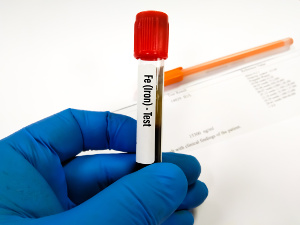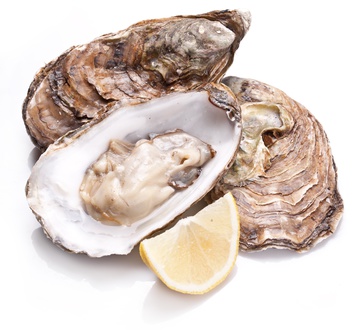| 1 x afterRenderRawModule mod_tags_popular (Search) (15.1KB) (27.48%) | 53.61ms |
| 1 x afterRenderRawModule mod_articles_category (READ MORE...) (1.71KB) (25.18%) | 49.14ms |
| 1 x afterRenderComponent com_tags (1.3MB) (14.19%) | 27.69ms |
| 1 x afterInitialise (1.28MB) (10.16%) | 19.83ms |
| 1 x afterRoute (840.02KB) (3.46%) | 6.76ms |
| 1 x afterRender (215.46KB) (2.55%) | 4.97ms |
| 1 x beforeRenderRawModule mod_articles_category (READ MORE...) (440.27KB) (2.49%) | 4.85ms |
| 1 x afterLoad (456.66KB) (2.14%) | 4.18ms |
| 1 x beforeRenderRawModule mod_custom (Chronic fatigue tied Alan to his bed but Q10 capsules saved him:) (244.28KB) (1.38%) | 2.70ms |
| 1 x afterRenderRawModule mod_languages (Sprogskift) (22.55KB) (1.19%) | 2.33ms |
| 1 x afterRenderRawModule mod_finder () (128.59KB) (1.09%) | 2.12ms |
| 1 x afterRenderRawModule mod_menu (Main Menu - English) (6.3KB) (1.03%) | 2.01ms |
| 1 x afterRenderRawModule mod_menu (Main Menu - English) (186.95KB) (0.92%) | 1.79ms |
| 1 x afterRenderRawModule mod_languages (Sprogskift Mobil) (3.89KB) (0.89%) | 1.73ms |
| 1 x afterDispatch (27.55KB) (0.76%) | 1.49ms |
| 1 x afterRenderRawModule mod_custom () (22.68KB) (0.55%) | 1.07ms |
| 1 x afterRenderRawModule mod_finder () (6.25KB) (0.5%) | 979μs |
| 1 x beforeRenderRawModule mod_menu (Main Menu - English) (29.14KB) (0.47%) | 917μs |
| 1 x afterRenderRawModule mod_menu (Are you getting enough vitamins and minerals?) (22.39KB) (0.34%) | 673μs |
| 1 x After Access::preloadComponents (all components) (103.05KB) (0.31%) | 610μs |
| 1 x beforeRenderModule mod_articles_category (READ MORE...) (20.82KB) (0.26%) | 510μs |
| 1 x Before Access::preloadComponents (all components) (50.9KB) (0.23%) | 454μs |
| 1 x beforeRenderComponent com_tags (21.4KB) (0.16%) | 314μs |
| 1 x afterRenderRawModule mod_menu (Did you know.....) (25.52KB) (0.16%) | 311μs |
| 1 x afterRenderRawModule mod_menu (The key to increased well-being) (17.83KB) (0.13%) | 261μs |
| 1 x afterRenderRawModule mod_custom (BOOST YOUR IMMUNE DEFENSE) (3.8KB) (0.11%) | 214μs |
| 1 x beforeRenderRawModule mod_custom () (8.66KB) (0.1%) | 190μs |
| 1 x afterRenderRawModule mod_custom () (904B) (0.08%) | 160μs |
| 1 x beforeRenderRawModule mod_custom () (6.62KB) (0.08%) | 156μs |
| 1 x beforeRenderRawModule mod_menu (Main Menu - English) (5.07KB) (0.06%) | 113μs |
| 1 x afterRenderRawModule mod_custom () (896B) (0.05%) | 100μs |
| 1 x beforeRenderRawModule mod_custom () (688B) (0.04%) | 84μs |
| 1 x afterRenderModule mod_custom (Chronic fatigue tied Alan to his bed but Q10 capsules saved him:) (1.3KB) (0.03%) | 63μs |
| 1 x afterRenderModule mod_finder () (3.29KB) (0.03%) | 58μs |
| 1 x afterRenderModule mod_menu (Main Menu - English) (1.25KB) (0.03%) | 58μs |
| 1 x After Access::getAssetRules (id:8 name:com_content) (7.05KB) (0.03%) | 57μs |
| 1 x afterRenderRawModule mod_custom (Get additionel and more detailed knowledge ) (1.55KB) (0.03%) | 57μs |
| 1 x afterRenderModule mod_menu (Main Menu - English) (4.86KB) (0.03%) | 57μs |
| 1 x afterRenderModule mod_custom () (1.23KB) (0.03%) | 53μs |
| 1 x afterRenderModule mod_finder () (1.23KB) (0.03%) | 51μs |
| 1 x afterRenderModule mod_articles_category (READ MORE...) (1.25KB) (0.02%) | 45μs |
| 1 x afterRenderRawModule mod_custom (Chronic fatigue tied Alan to his bed but Q10 capsules saved him:) (1.06KB) (0.02%) | 43μs |
| 1 x beforeRenderRawModule mod_custom (Get additionel and more detailed knowledge ) (816B) (0.02%) | 38μs |
| 1 x afterRenderRawModule mod_custom (Useful Links) (1.02KB) (0.02%) | 37μs |
| 1 x afterRenderModule mod_languages (Sprogskift Mobil) (1.27KB) (0.02%) | 36μs |
| 1 x afterRenderRawModule mod_custom (Overview of vitamins, minerals, and essential fatty acids) (960B) (0.02%) | 33μs |
| 1 x afterRenderModule mod_custom (Cholesterol-lowering without side effects:) (1.28KB) (0.02%) | 31μs |
| 1 x beforeRenderRawModule mod_custom (BOOST YOUR IMMUNE DEFENSE) (6.45KB) (0.02%) | 30μs |
| 1 x afterRenderModule mod_custom (Useful Links) (1.27KB) (0.01%) | 28μs |
| 1 x afterRenderModule mod_custom () (2.43KB) (0.01%) | 27μs |
| 1 x afterRenderRawModule mod_custom (Cholesterol-lowering without side effects:) (1.06KB) (0.01%) | 26μs |
| 1 x afterRenderModule mod_custom (BOOST YOUR IMMUNE DEFENSE) (1.28KB) (0.01%) | 26μs |
| 1 x afterRenderModule mod_tags_popular (Search) (1.27KB) (0.01%) | 25μs |
| 1 x afterRenderModule mod_custom (Get additionel and more detailed knowledge ) (1.3KB) (0.01%) | 24μs |
| 1 x afterRenderModule mod_custom (Overview of vitamins, minerals, and essential fatty acids) (1.31KB) (0.01%) | 24μs |
| 1 x afterRenderModule mod_custom (Are you taking supplements) (1.28KB) (0.01%) | 24μs |
| 1 x afterRenderModule mod_custom (Antiaging) (3.77KB) (0.01%) | 24μs |
| 1 x afterRenderModule mod_custom (Weight loss that works) (1.27KB) (0.01%) | 24μs |
| 1 x afterRenderModule mod_custom () (2.71KB) (0.01%) | 23μs |
| 1 x afterRenderModule mod_custom (Q10 goes by many names) (1.27KB) (0.01%) | 23μs |
| 1 x afterRenderRawModule mod_custom (Q10 goes by many names) (928B) (0.01%) | 22μs |
| 1 x afterRenderModule mod_menu (Are you getting enough vitamins and minerals?) (1.3KB) (0.01%) | 22μs |
| 1 x beforeRenderRawModule mod_languages (Sprogskift) (3.94KB) (0.01%) | 22μs |
| 1 x afterRenderModule mod_languages (Sprogskift) (5.31KB) (0.01%) | 22μs |
| 1 x afterRenderRawModule mod_custom (Check this before you buy a Q10 product) (944B) (0.01%) | 21μs |
| 1 x afterRenderRawModule mod_custom (Are you taking supplements) (1.03KB) (0.01%) | 21μs |
| 1 x afterRenderModule mod_custom (Check this before you buy a Q10 product) (1.28KB) (0.01%) | 20μs |
| 1 x beforeRenderRawModule mod_languages (Sprogskift Mobil) (912B) (0.01%) | 20μs |
| 1 x afterRenderRawModule mod_custom (Antiaging) (912B) (0.01%) | 19μs |
| 1 x beforeRenderRawModule mod_menu (The key to increased well-being) (736B) (0.01%) | 19μs |
| 1 x afterRenderModule mod_menu (The key to increased well-being) (1.28KB) (0.01%) | 19μs |
| 1 x afterRenderModule mod_menu (Did you know.....) (1.27KB) (0.01%) | 19μs |
| 1 x beforeRenderRawModule mod_custom (Useful Links) (1.06KB) (0.01%) | 19μs |
| 1 x Before Access::getAssetRules (id:8 name:com_content) (840B) (0.01%) | 18μs |
| 1 x afterRenderRawModule mod_custom (Weight loss that works) (1.03KB) (0.01%) | 18μs |
| 1 x beforeRenderRawModule mod_tags_popular (Search) (2.36KB) (0.01%) | 16μs |
| 1 x beforeRenderRawModule mod_custom (Cholesterol-lowering without side effects:) (368B) (0.01%) | 16μs |
| 1 x beforeRenderModule mod_custom (BOOST YOUR IMMUNE DEFENSE) (6.81KB) (0.01%) | 16μs |
| 1 x beforeRenderRawModule mod_menu (Did you know.....) (720B) (0.01%) | 15μs |
| 1 x beforeRenderModule mod_tags_popular (Search) (1.98KB) (0.01%) | 14μs |
| 3 x beforeRenderModule mod_custom () (704B) (0.01%) | 14μs |
| 1 x beforeRenderModule mod_menu (Are you getting enough vitamins and minerals?) (2.13KB) (0.01%) | 13μs |
| 1 x beforeRenderRawModule mod_custom (Q10 goes by many names) (608B) (0.01%) | 13μs |
| 1 x beforeRenderRawModule mod_custom (Check this before you buy a Q10 product) (752B) (0.01%) | 13μs |
| 1 x beforeRenderRawModule mod_finder () (6.34KB) (0.01%) | 12μs |
| 1 x beforeRenderRawModule mod_custom (Overview of vitamins, minerals, and essential fatty acids) (768B) (0.01%) | 12μs |
| 1 x beforeRenderRawModule mod_menu (Are you getting enough vitamins and minerals?) (2.5KB) (0.01%) | 12μs |
| 2 x beforeRenderModule mod_finder () (704B) (0.01%) | 12μs |
| 1 x beforeRenderModule mod_custom (Antiaging) (336B) (0.01%) | 11μs |
| 1 x beforeRenderModule mod_menu (The key to increased well-being) (352B) (0.01%) | 11μs |
| 1 x beforeRenderRawModule mod_finder () (2.3KB) (0.01%) | 11μs |
| 1 x beforeRenderRawModule mod_custom (Antiaging) (720B) (0.01%) | 10μs |
| 1 x beforeRenderModule mod_custom (Get additionel and more detailed knowledge ) (1.17KB) (0.01%) | 10μs |
| 1 x beforeRenderRawModule mod_custom (Are you taking supplements) (736B) (0%) | 9μs |
| 1 x beforeRenderRawModule mod_custom (Weight loss that works) (736B) (0%) | 9μs |
| 1 x beforeRenderModule mod_custom (Q10 goes by many names) (208B) (0%) | 9μs |
| 1 x beforeRenderModule mod_custom (Check this before you buy a Q10 product) (352B) (0%) | 9μs |
| 1 x beforeRenderModule mod_custom (Useful Links) (1.44KB) (0%) | 9μs |
| 2 x beforeRenderModule mod_menu (Main Menu - English) (720B) (0%) | 9μs |
| 1 x beforeRenderModule mod_custom (Overview of vitamins, minerals, and essential fatty acids) (384B) (0%) | 9μs |
| 1 x beforeRenderModule mod_menu (Did you know.....) (336B) (0%) | 9μs |
| 1 x beforeRenderModule mod_custom (Weight loss that works) (336B) (0%) | 8μs |
| 1 x beforeRenderModule mod_custom (Are you taking supplements) (352B) (0%) | 8μs |
| 1 x beforeRenderModule mod_custom (Chronic fatigue tied Alan to his bed but Q10 capsules saved him:) (768B) (0%) | 5μs |
| 1 x beforeRenderModule mod_languages (Sprogskift) (720B) (0%) | 5μs |
| 1 x beforeRenderModule mod_languages (Sprogskift Mobil) (720B) (0%) | 5μs |
| 1 x beforeRenderModule mod_custom (Cholesterol-lowering without side effects:) (752B) (0%) | 3μs |
 Lack of iron is the most widespread nutrient deficiency in the world and the most common cause of anemia. Iron deficiency causes fatigue, dizziness, paleness, impaired immunity, hair loss, and a host of other symptoms. It can cause stunted growth and learning difficulty in children. Some of the things that can cause iron deficiency are heavy menstrual bleeding, pregnancy, vegetarian/vegan diets, lack of vitamin C, antacids, inflammatory bowel diseases, and celiac disease. Excess iron, on the other hand, can also spell trouble by generating harmful free radicals that attack our cells. So, it is important not to get too little or too much iron – but just the right amount. In the following, you can read more about iron and its importance for our health.
Lack of iron is the most widespread nutrient deficiency in the world and the most common cause of anemia. Iron deficiency causes fatigue, dizziness, paleness, impaired immunity, hair loss, and a host of other symptoms. It can cause stunted growth and learning difficulty in children. Some of the things that can cause iron deficiency are heavy menstrual bleeding, pregnancy, vegetarian/vegan diets, lack of vitamin C, antacids, inflammatory bowel diseases, and celiac disease. Excess iron, on the other hand, can also spell trouble by generating harmful free radicals that attack our cells. So, it is important not to get too little or too much iron – but just the right amount. In the following, you can read more about iron and its importance for our health.







 Copper is an essential trace element. An adult contains around 100-150 micrograms of copper. Most of it is found in the liver, brain, kidneys, and heart. Fetuses and newborn babies have particularly high copper levels in their liver. In fact, the liver is believed to serve as an extra storage facility during lactation where the copper content in breastmilk is rather low.
Copper is an essential trace element. An adult contains around 100-150 micrograms of copper. Most of it is found in the liver, brain, kidneys, and heart. Fetuses and newborn babies have particularly high copper levels in their liver. In fact, the liver is believed to serve as an extra storage facility during lactation where the copper content in breastmilk is rather low. Sulphur is essential for plants and animals. An adult contains around 175 grams of sulphur. The nutrient is found in the amino acids cysteine and methionine and is therefore also present in all the proteins and enzymes that contain these amino acids. Sulphur is a component of those enzymes that are responsible for ensuring that the hemoglobin in red blood cells is able to bind oxygen. Sulphur is also a component of the disulfide bonds that give strength to skin, hair, and nails. The reason why bird eggs have such a high sulphur content is that the nutrient is needed for the plumage of the developing bird. Sulphur is able to bind heavy metals and other toxins. Sulphur is chemically similar to selenium, but sulphur is not an antioxidant and has other functions in the body.
Sulphur is essential for plants and animals. An adult contains around 175 grams of sulphur. The nutrient is found in the amino acids cysteine and methionine and is therefore also present in all the proteins and enzymes that contain these amino acids. Sulphur is a component of those enzymes that are responsible for ensuring that the hemoglobin in red blood cells is able to bind oxygen. Sulphur is also a component of the disulfide bonds that give strength to skin, hair, and nails. The reason why bird eggs have such a high sulphur content is that the nutrient is needed for the plumage of the developing bird. Sulphur is able to bind heavy metals and other toxins. Sulphur is chemically similar to selenium, but sulphur is not an antioxidant and has other functions in the body. "After about one week of taking the Q10 supplement I could feel a huge difference," says 23-year old Alan Piccini, who has been suffering from extreme fatigue and muscle aches ever since he was a child.
"After about one week of taking the Q10 supplement I could feel a huge difference," says 23-year old Alan Piccini, who has been suffering from extreme fatigue and muscle aches ever since he was a child. “Taking capsules with co-enzyme Q10 has freed me of the severe side effects of my cholesterol lowering medicine,” Mrs Franken explains.
“Taking capsules with co-enzyme Q10 has freed me of the severe side effects of my cholesterol lowering medicine,” Mrs Franken explains.